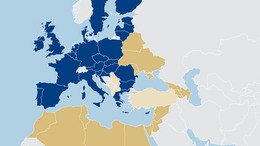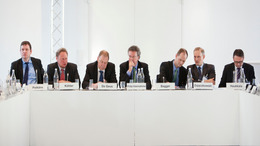The European aid as regards democratic consolidation may well have taken effect since 2011, yet the aid programmes targeting the creation of jobs for the young, on the one hand, and making the Tunisian police and army more efficient and democratic, on the other, are still lacking behind. To continue its positive transformation, which has suffered a severe setback through the assassination of European tourists at the beach of Sousse, Tunisia requires stronger support in border security towards Libya as well as the control of returning Jihadists.
Given terror, flights, crises and wars in its southern and eastern neighbourhood, the EU is currently reviewing its European Neighbourhood Policy vis-à-vis the 16 partner countries. Brussels has called on civil society to bring its expertise and ideas into the reform debate of the ENP. Within the framework of its project “Connecting Europe“, in January, the Bertelsmann Stiftung published a first set of general reform proposals in its strategy paper ”The EU neighbourhood in shambles". In April, the Stiftung took the debate about the ENP reform to Tunis and initiated discussions with, inter alia, the Tunisian Head of the Goverment Habib Essid, Federal President Joachim Gauck, EU Commissioner for enlargement, Johannes Hahn, and the Tunisian Minister of Finance Ben Chaker at its European Neighbourhood Conference. The results were brought together in a new strategy paper, specifically targeted towards the European neighbours in North Africa and, in particular, Tunisia, “Tunisia’s transformation – Cooperating with the neighbours“.






